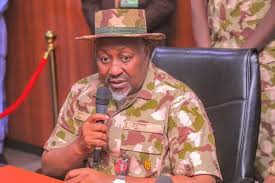True leadership knows no gender and despite societal condemnation or restrictions of women, women have risen to the challenge and stepped up to take the reins of governance firmly in their delicate hands.
As women are achieving higher levels of education and are being employed in more prominent positions, their leadership roles have also increased. From the past to the present, there are not many women in leadership roles even though the percentage of women in the world is more than that of men.
Although gender discrimination has been a major barrier to women moving up in the leadership hierarchy, gender is important even though it has been the wrong way to judge women’s leadership and prevent them from not becoming role models. Women are often judged because people don’t believe and respect women.
A typical example is Hilary Clinton. She has faced too many challenges because people don’t believe she has the right abilities to serve in government because she is a woman. This difficulty is not only common in politics as women face gender inequality in other areas, such as businesses, science and medical fields.
But the society believes that the only workplace for women is the house and the kitchen. But as time changes everything, women are now strong enough to face these challenges and become a success in the society. Women leaders can give good economy, social development and a better country.
The likes of Dr Okonjo Ngozi-Iweala recently emerged as the Director-General of the World Trade Organization (WTO). She is the first woman to hold the office, and she also had a 25-year career at the World Bank as a development economist, rising to the number two position of managing director, operations (2007–2011).
Other women served as presidents of their respective countries like Ellen Johnson Sirleaf who was Africa’s first elected female president. She served two consecutive terms as Liberia’s president. Ameenah Gurib-Fakim president of Mauritius and Sahle-Work Zewde is the first elected female president of Ethiopia and currently the only female out of the 54 presidents in Africa. These women have all been a stepping stone to other women who still do not fill administrative positions in comparison to men.
I believe that if men can become leaders, women can also become leaders. women have high education, they are skillful, and they have a good leadership style which is important in fostering development in the society and the country at large. And this can only be achieved through maximum support by men, the society and also the government. This is a wake up call to all to support the vision of women to be leaders in their work places, society and in government.
Ibrahim Hassan Mshelia,
Department of Mass Communication, University of Maiduguri




